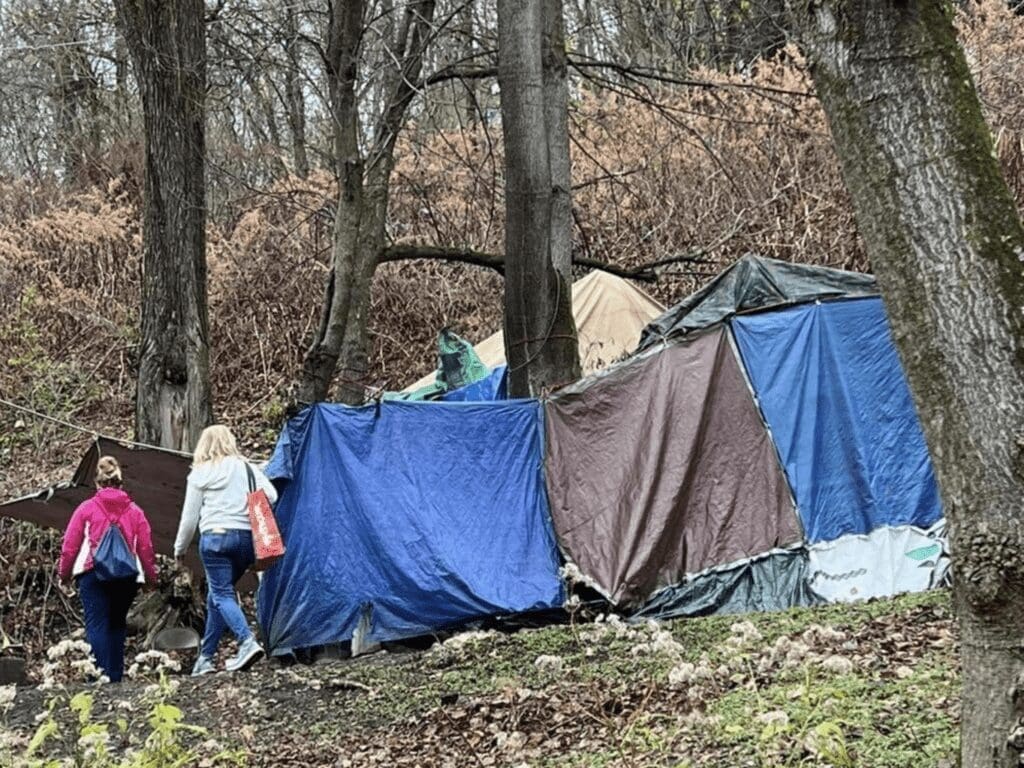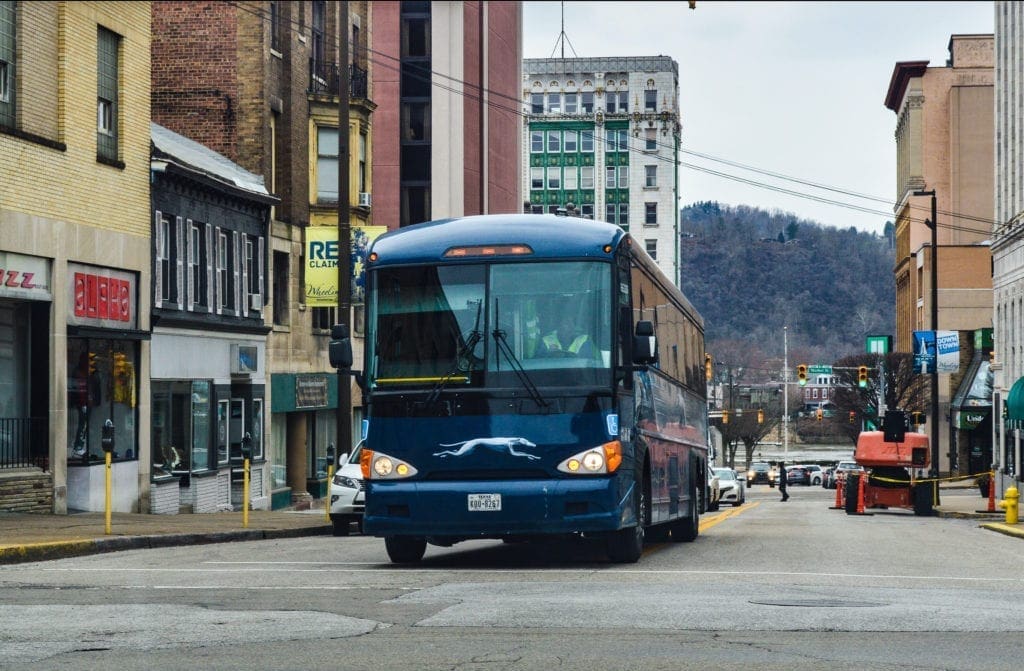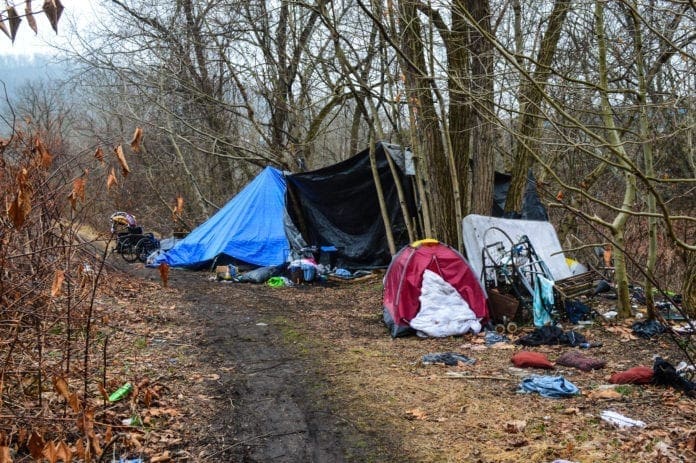“Homeless? Go to Wheeling!!”
Have signs with those words – “Homeless? Go to Wheeling!!” – been hung in bus stations across the country? Have law enforcement agencies and city officials sent homeless individuals to the Friendly City because, well, it’s the Friendly City?
Ohio County Sheriff Tom Howard confirmed in April 2021 that during his 20-year career with the Wheeling Police Department, he witnessed proof that homeless men and women have been sent via Greyhound Bus “many times.” And now, Wheeling’s homeless liaison, Melissa Adams, has learned for herself the rumors are true.
“How I initially decided to look into that was to sit down at the Greyhound station when people were getting off the buses,” she explained. “Now, obviously you have to sit there and be like, do you think they’re homeless? That was really a hard thing and I didn’t want to do that because it meant I had to pass judgment on others and that’s just not me.
“So, I just kind of watched who was getting off the bus and I did talk with some people about it, but trust me, there were not the droves of people I was told about,” Adams said. “Now, the last winter shelter was very helpful to me because I was able to collect a lot of data while talking with the people who were staying there. I asked them where they were from and why they came here to Wheeling, and I got a lot of answers for the questions I had.”

The Wheeling Life Hub’s inaugural winter shelter, staged from December 2022 to March 2023 in the second-floor ballroom of the Catholic Charities Building in Center Wheeling, attracted 325 non-repeat residents.
“There were people who were sent here by their communities because those places didn’t want homeless in their towns. They didn’t want to deal with them,” Adams reported. “But I also noticed that I was talking with a lot of people from here in the valley. I spoke with people from Moundsville, Washington, Pa., New Martinsville, and some other places.”

Sending the Homeless Home
Homelessness has history in the Wheeling area and that is one of several reasons why non-profits like the Greater Wheeling Soup Kitchen and the Catholic Charities Neighborhood Center were created decades ago.
Those organizations, however, have reported record-setting numbers the past few years, and newer non-profits like Project Hope and Street Moms attend to the people living in the tented communities. Several camps have been closed and cleared by the City of Wheeling, too, because of connected crimes, and bridges have been closed following fires caused by homeless individuals beneath.
The Market Street Bridge, in fact, must be replaced because of damage sustained by an out-of-control blaze in June 2022, and currently Wheeling Police investigators are searching for a “situationally homeless” individual named Roland Copney who allegedly attacked a veteran employee of the City of Wheeling on Sept. 14.
“That’s why we’ve established new rules for the camps in the city of Wheeling,” Adams said. “No more camps along our Heritage Trails, and no more camp along our waterways. We’re doing our best to enforce those rules, and when crimes are committed, there is zero tolerance and we’ve seen that be the case in the past.”
Have those rules concerning camp locations caused a decrease in the number of homeless in Wheeling? What about the phone calls she’s made to officials in the cities that have sent their huddled masses of homeless?
“I can’t tell you the phone calls made it completely stop,” Adams said. “But it’s not as many as it once was, I can tell you that. I can also say that right now, there are 65 homeless people living in Wheeling, and that’s a much lower number than it was at this time last year. Last year, it was nearly double.
“The good news is that we are placing more and more homeless people into housing, and we are sending more people back to their hometowns than we ever have before with funds made available by the Wheeling Life Hub,” she explained. “The first thing I do when I meet a new homeless person is ask them if they want to be here or if they would rather return to their hometown. Nine times out of 10, they want to go home. So, if they want to go home, we send them home.”


